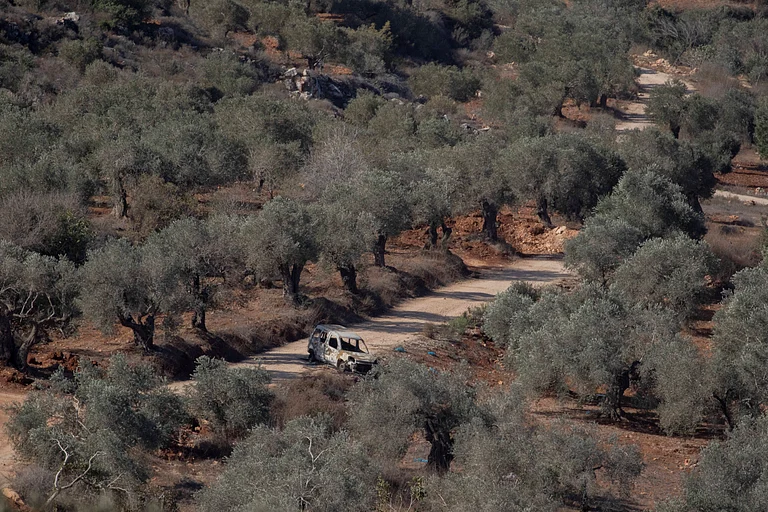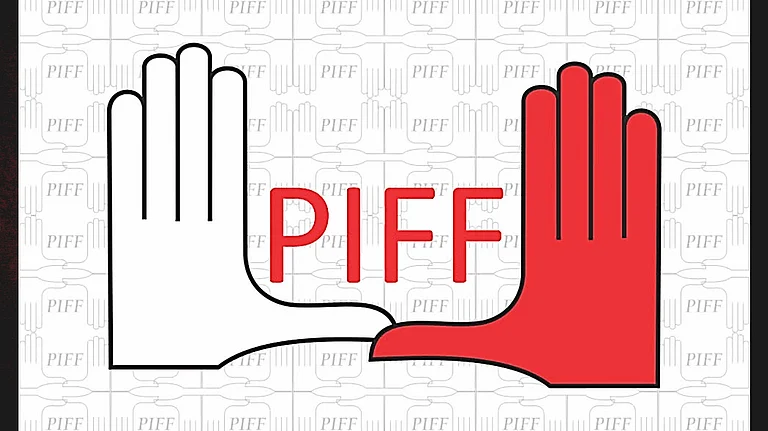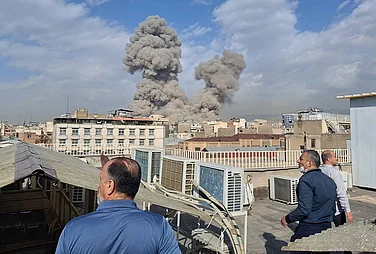Even as the top United Nations court urged Israel to halt its operations in Gaza last week, Israeli tanks and forces wrecked havoc on the refugee camp in Rafah on Sunday, killing at least 45 civilians. The same area was pummelled with overnight strikes for the past few days, drawing international condemnation. Yet, the White House said that the Israeli attacks had not violated Joe Biden's “red line”.
“It was a night of horror,” Abdel-Rahman Abu Ismail, a Palestinian from Gaza City who has been sheltering in Tel al-Sultan since December, recalled. He heard “constant sounds” of explosions overnight and into Tuesday, with fighter jets and drones flying over the area.
Is this the first time Israel has attacked a refugee camp?
This is not the first time that Israel has attacked refugee camps amidst its ongoing war on Gaza. During two consecutive days, on October 31 and November 1, 2023, Israeli air forces conducted a series of air raids which hit Gaza’s Jabalia refugee camp. At least 90 people were killed and more than a 100 injured, according to Al Jazeera.
Gaza refugee camps were originally established to provide temporary shelter to hundreds of thousands of Palestinians who lost their homes to the 1948 Arab-Israeli War. However, they have become primary target points for the Israeli military base over the years.
The Rafah Camp is one of eight Palestinian refugee camps in the Gaza Strip. Ever since the escalation of Israel’s war in October last year, these refugee camps have become even more cramped as thousands of people continue to leave their homes to escape the deadly violence.
Which international laws has Israel violated via its actions?
The Hague Law and Geneva Conventions are some of the international laws and agreements that prescribe the rules of conduct for military forces, address the rights of protected persons, including civilians and prisoners of war, in an international armed conflict. Israel has ratified the Geneva Conventions.
The First and Fourth Geneva Conventions exclusively protect hospitals, safety zones, and neutral zones which are intended to shelter the wounded, the sick and civilians, from the consequences of conflict and in general calls for the overall protection of people who do not take part in any hostilities. However, Israeli forces shelled a tent camp in a designated “safe zone” west of Rafah and killed at least 21 people, including 13 women and girls on May 29.
Israel previously designated al-Mawasi, in western Rafah as a humanitarian area to which Palestinians should evacuate for their safety. According to a report by Al Jazeera, air attacks have repeatedly hit tent camps in al-Mawasi region, forcing the Al-Quds Field Hospital, run by the Palestine Red Crescent Society (PRCS) to move out of the area. The field hospital was one of the last few functioning health facilities in Rafah.
These actions come days after the ICJ called on Israel to halt its Rafah offensive. Although the top court doesn’t have the power to enforce this order, any member state on the UN Security Council may refer the matter of Israel’s non-compliance of ICJ’s orders to the UN Security Council, which would then vote on whether to require Israel to abide by the provisional measures. However, any such sanctions or votes may be vetoed by the US, which is Israel’s close ally.
What is the ‘red line’ that White House says Israeli attacks haven’t crossed?
President Joe Biden warned earlier this month that the United States would block certain arms transfers if Israel targeted heavily populated areas in Rafah. After Sunday’s attack, John F Kirby, a White House spokesman, said the deaths were “devastating” but that the scale of the attack was not enough to change the country's policy. “We don’t want to see a major ground operation. We haven’t seen that,” Kirby told reporters.
When asked about the presence of Israeli tanks in Rafah on Tuesday, Kirby said,, “We have not seen them go in with large units, large numbers of troops, in columns and formations in some sort of coordinated manoeuvre against multiple targets on the ground.” Israeli Prime Minister Benjamin Netanyahu meanwhile admitted that the strike which killed dozens of displaced Palestinians in Rafah on Sunday was a "tragic mistake”.




























